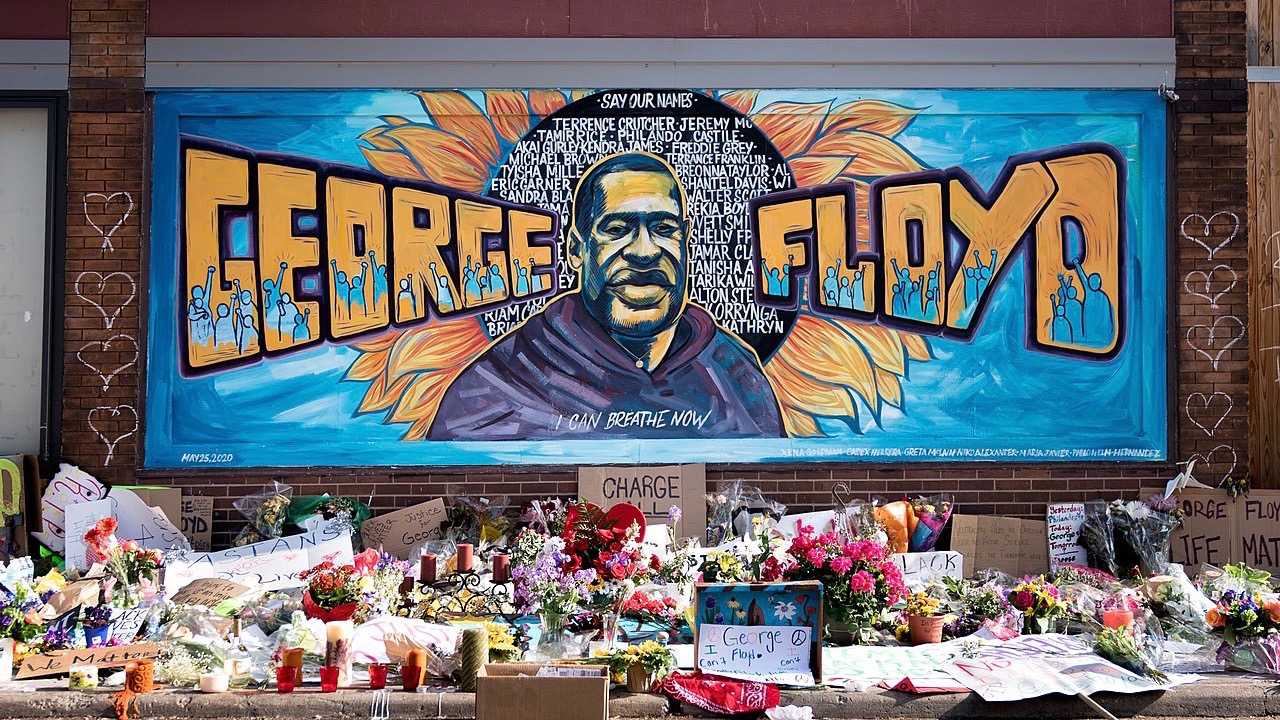Former Minneapolis police officer Derek Chauvin has been convicted for the murder of 46-year-old George Floyd. Chauvin was facing three charges – murder in the second and third degree and second degree manslaughter. A 12-member jury found him guilty on all charges as per the verdict announced by Hennepin County District Judge Peter A. Cahill on April 20. Following the verdict, Chauvin’s $1 million dollar bail was revoked and he was immediately remanded into custody. He will now await sentencing, which is expected to take place in the next two months.
Chauvin was filmed kneeling on Floyd’s neck for over nine minutes during his arrest on May 25, 2020. He had been apprehended for allegedly trying to use a counterfeit $20 dollar bill. Footage of his arrest showed him stating repeatedly that he was unable to breathe. A report by the Hennepin County Medical Examiner ruled Floyd’s death a homicide stating that he died of “cardiopulmonary arrest complicating law enforcement subdual restraint, and neck compression.”
A total of 45 witnesses testified in Chauvin’s trial which began on March 29th and extended over three weeks. Expert witnesses called by the prosecution testified that Floyd had died due to a lack of oxygen caused by the type of restraint used by Chauvin. The three other former police officers who were also present at the scene-Thomas Lane, J. Alexander Keung, and Tou Thao- have been charged with aiding and abetting murder. They will face a separate trial scheduled for August 23.
Chauvin’s conviction has been celebrated widely as a first necessary step in securing justice and for setting a necessary precedent that police cannot enjoy impunity for committing violence against marginalized communities. The conviction is largely attributed to the mass mobilizations against racism and police brutality that took place over the last year in towns and cities across the US and according to official polls saw anywhere between 15 and 26 million people participate.
Brian Becker of the ANSWER Coalition (Act Now to Stop War & End Racism) wrote on twitter, “This trial and this guilty verdict is 100% the result of the mass movement of millions of people last summer. What matters is the mass movement. Nothing has greater power than the power that’s in and from the people.”
In a statement released following Tuesday’s verdict, the Party for Socialism and Liberation argued that “the verdict was an offering from a shaken establishment….An exceptional moment caused the system to make an exception to the rule of immunity for police terror. Because the police have codified their murderous practices the ‘ironclad’ case against Chauvin was based on the fiction that his actions were somehow unique, rather than routine police practice.”
These protests also re-intensified demands for the total abolition of the police. In response, the City Council of Minneapolis passed a resolution to disband the city’s police department. However, the resolution was effectively blocked by the City Charter Commission which deferred a decision on it without setting a date.
The reality of the racist US police system was on full display even amidst the historic trial. On April 11, 20-year-old Daunte Wright was shot and killed by police in Brooklyn Center, just outside of Minneapolis, during a traffic stop. Shortly before the verdict against Chauvin was announced on April 20, 16-year-old Ma’Khia Bryant was shot by police four times in the city of Columbus, Ohio when police were called to break up an altercation. The 16-year-old was transferred to a hospital in a critical condition and died shortly after.
Interim Police Chief Michael Woods stated on Tuesday that police were authorized to use deadly force to protect themselves or a third party. According to local media reports, around a 100 people gathered outside the Columbus Police Headquarters to protest Bryant’s death. Columbus police has announced that the Bureau of Criminal Investigation is investigating the case.





